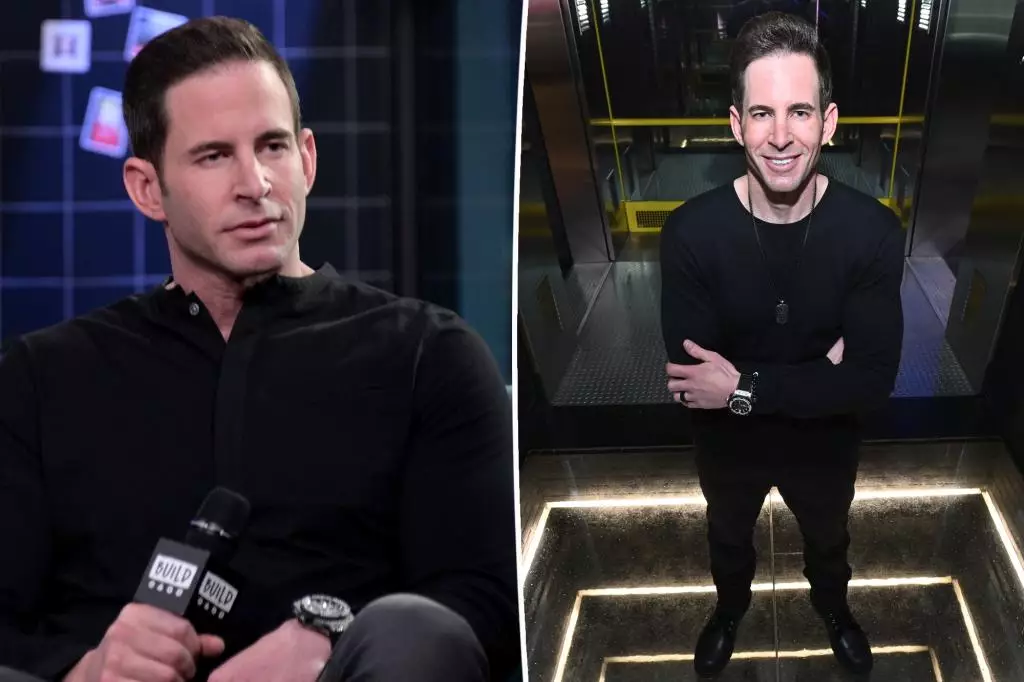In an alarming turn of events for reality TV star Tarek El Moussa, details surrounding an alleged physical confrontation in Las Vegas have surfaced, casting a shadow over his public persona as a beloved HGTV figure. The incident, which took place on June 5 at the Palazzo at the Venetian hotel, saw El Moussa engage in a violent altercation with another man, an action that has drawn both attention and criticism. According to a police report obtained by media outlets, including TMZ, the altercation escalated after an accidental bump at the roulette table—a seemingly trivial scenario that spiraled out of control into an unexpected display of aggression.
Witnesses report that El Moussa’s initial reaction involved a push, escalating to a fighting stance before he delivered a knee strike that forced the man to the ground. From there, the reality star allegedly followed up with several blows to the head, showcasing an alarming level of physicality that raises questions about his judgment and emotional control in a public setting. This incident not only marks a troubling moment for El Moussa but also serves as a reminder of how celebrity status can amplify every minor incident into a media frenzy.
Crisis Management and Public Image
El Moussa’s justification for this violent act—claiming he was protecting his father—presents a complex narrative that requires deeper scrutiny. While instinctively defending a loved one is understandable, crossing the line into physical violence is where the moral compass falters. By portraying himself as a protector, is El Moussa attempting to rewrite this narrative into one of heroism? The involvement of police, who were quick to issue him a citation for battery, undermines this perception and raises further questions about the severity of his response.
The reality of our fascination with celebrity culture is that it often glosses over the darker nuances of behavior that may not align with the ideals they project. El Moussa, who has built his brand around positivity and home transformation, now finds himself at a crossroads that could redefine his brand. It is imperative for public figures to recognize the immense responsibility that comes with their status; any departure from acceptable conduct can lead to damaging repercussions, not just for their careers, but for their personal lives as well.
Social Media Fallout
The online realm has erupted in reaction to the incident. While some fans are empathetic to El Moussa’s position as a protector, many others express concern over his readiness to resort to physical altercations rather than de-escalate the situation verbally. The discourse in social media highlights a division amongst followers; some still regard him as a likable figure, while others argue that the incident reveals underlying aggression that contradicts his public persona. This incident can serve as a litmus test for the fine line celebrities must walk between maintaining an appealing image and dealing with raw human emotions.
Furthermore, the reactions of those close to him appear to differ significantly from public opinion. His wife, Heather Rae Young, shared moments from their vacation on social media, choosing to focus on the positive aspects without addressing the violence that marred this trip. This selective storytelling raises questions about personal accountability and the nature of sharing experiences in the age of social media. By omitting the incident, is she weaponizing the notion of ‘keeping up appearances,’ thereby reinforcing the façade that often surrounds celebrity life?
Defining Celebrity Responsibility
The incident involving Tarek El Moussa directs attention toward a broader conversation about the responsibility that accompanies fame. Celebrities are not merely public figures; they are intricately woven into the fabric of popular culture. Their actions resonate widely, influencing public behavior and setting social norms. As such, their conduct should reflect a high standard, one that acknowledges the fragility of human interaction and the repercussions of violence in any form.
The dichotomy of celebrity—where influence meets vulnerability—demands personal reflection. Are they merely victims of circumstance in a world where every action is scrutinized, or do they hold the ultimate power to shape the narratives surrounding their lives? As fans and observers, we must grapple with these questions, for the answers may reveal not only the challenges faced by figures like El Moussa, but also the societal expectations placed upon them.
—
In the age of instant gratification and excessive scrutiny, Tarek El Moussa’s recent altercation serves as a microcosm of the intense pressures of celebrity life. The responsibility to exemplify grace under fire continues to be an uphill battle for those in the public eye, one that may redefine their legacy in unexpected ways.

